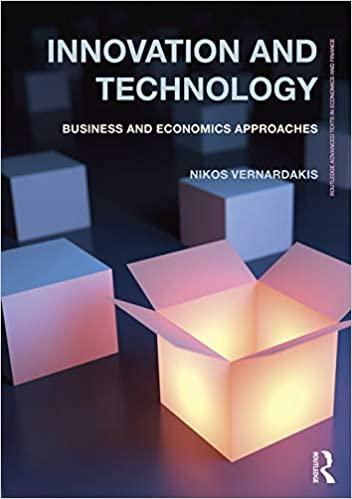Question
1. You have a child that is 10 years old, and would like to start saving up for their college education. You would like be
1. You have a child that is 10 years old, and would like to start saving up for their college education. You would like be able to pay $35,000 each year for four years of college starting 8 years from now (in years 8-11). How much do you need to save annually in years 1-7 to meet your goal, if you can earn a real annual return of 11% on your college savings account?
2. You are offered $1000 (in nominal dollars) 6 years from now in exchange for a loan of $750 today. You expect inflation to run 3.3% per year, and your real hurdle rate is 5%. Should you make the loan?
3. You would like to have $10000 (in real $) in an account 80 years from now. If the annual inflation rate is expected to be 2.2%, and you expect a nominal annual return of 5.5% on the account, how much would you need to put in today?
4. You buy a car, and take out a loan for $18,000 that has equal nominal annual payments over the next five years. The real rate of return on the loan is 3.9%, and the annual inflation rate is 2%. What will the payments be?
5. You have $1000 in an account that yields a nominal return of 5%. If the inflation rate is 2%, how long will you have to leave your money in the account for it to double in real terms?
6. A project costs $2000 immediately. The project yields nominal returns of $100 in year 1, $200 in year 2, $300 in year 3, $400 in year 4, and $500 in year 5. In addition, the project will have capital worth $1000 (in nominal $) left over in year 5. The real discount rate is 5% and the expected inflation rate is 2%. What is the NPV of this project?
7. You have $1000 to invest, and are choosing between two projects, both of which cost $1000 up front and will yield six years of returns. The returns for the first investment will start at $200 (in nominal $) a year from now and increasing at 8% annually. The returns for the second start at $250 (in real $) and increase at 2% annually. If your real hurdle rate is 3% and the expected inflation rate is 2.2%, which of these investments should you choose (if any)?
CAN YOU EXPLAIN ?
Step by Step Solution
There are 3 Steps involved in it
Step: 1

Get Instant Access to Expert-Tailored Solutions
See step-by-step solutions with expert insights and AI powered tools for academic success
Step: 2

Step: 3

Ace Your Homework with AI
Get the answers you need in no time with our AI-driven, step-by-step assistance
Get Started


